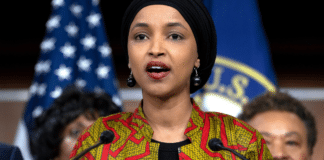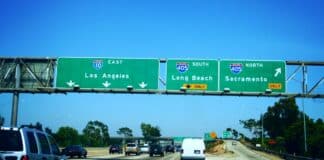The 21st Amendment to the United States Constitution is a significant piece of legislation that played a crucial role in shaping the nation’s history. This amendment repealed the 18th Amendment, which established the prohibition of alcohol in the United States.
A Brief History of Prohibition
To understand the 21st Amendment, it is essential to first examine the historical context of the 18th Amendment, which was ratified in 1919. The 18th Amendment, also known as the Prohibition Amendment, made it illegal to manufacture, sell, or transport intoxicating liquors in the United States. This period, known as Prohibition, lasted from 1920 to 1933.
The push for Prohibition began in the late 19th century, as various religious and social groups advocated for the temperance movement. These groups believed that alcohol was the root cause of many social ills, such as poverty, crime, and domestic violence. As a result, they sought to eliminate alcohol consumption in the United States.
The Failure of Prohibition
Despite the noble intentions of its supporters, Prohibition proved to be a failure in practice. Instead of reducing crime and social problems, it led to a significant increase in organized crime, as criminal organizations took advantage of the lucrative black market for alcohol. Bootlegging, or the illegal production and distribution of alcohol, became widespread, and speakeasies – secret bars that sold illegal alcohol – flourished in cities across the country.
Moreover, the federal government struggled to enforce the 18th Amendment, as it lacked the resources and manpower to effectively combat the widespread illegal alcohol trade. This led to widespread corruption among law enforcement officials, who were frequently bribed by criminal organizations to turn a blind eye to their activities.
As the negative consequences of Prohibition became increasingly apparent, public opinion began to shift. Many Americans began to view Prohibition as a failed experiment, exacerbating the problems it intended to solve.
The Push for Repeal
By the early 1930s, the movement to repeal the 18th Amendment gained momentum. One of the key factors driving this push was the onset of the Great Depression, which began in 1929. As the economy plummeted and unemployment soared, many Americans began to view the potential tax revenue from legal alcohol sales as a much-needed source of income for the struggling government.
In addition, the Democratic Party, which had traditionally been more supportive of Prohibition, began to shift its stance on the issue. In the 1932 presidential election, Democratic candidate Franklin D. Roosevelt ran on a platform that included the repeal of the 18th Amendment. Americans saw Roosevelt’s victory in the election as a mandate for change, and the push for repeal gained even more momentum.
The Ratification of the 21st Amendment
Congress proposed the 21st Amendment on February 20, 1933, and became ratified by the requisite number of states on December 5, 1933. The amendment is unique in that it is the only amendment to the Constitution that was ratified using state ratifying conventions, rather than state legislatures. This method was chosen in order to bypass potential opposition from state politicians who may have been influenced by Prohibition supporters.
The 21st Amendment is also notable for being the only amendment to the Constitution that specifically repeals another amendment. The text of the amendment is as follows:
“Section 1. The eighteenth article of amendment to the Constitution of the United States is hereby repealed.
Section 2. The transportation or importation into any State, Territory, or possession of the United States for delivery or use therein of intoxicating liquors, in violation of the laws thereof, is hereby prohibited.
Section 3. This article shall be inoperative unless it shall have been ratified as an amendment to the Constitution by conventions in the several States, as provided in the Constitution, within seven years from the date of the submission hereof to the States by the Congress.”
The Impact of the 21st Amendment
The ratification of the 21st Amendment marked the end of Prohibition and the beginning of a new era in American history. The legal alcohol industry quickly rebounded, and the federal government began to collect significant tax revenue from alcohol sales. This revenue was especially important during the Great Depression, as it helped to fund various government programs aimed at alleviating the economic crisis.
The repeal of Prohibition also led to a decline in organized crime, as the lucrative black market for alcohol disappeared. While criminal organizations did not vanish entirely, their power and influence were significantly diminished.
Works Cited
1. “18th and 21st Amendments.” History.com, A&E Television Networks, 9 Nov. 2009, www.history.com/topics/18th-and-21st-amendments.
2. “21st Amendment.” National Constitution Center – The 21st Amendment of the United States Constitution, National Constitution Center, constitutioncenter.org/interactive-constitution/amendments/amendment-xxi.
3. Kyvig, David E. Repealing National Prohibition. University of Chicago Press, 2000.
4. Okrent, Daniel. Last Call: The Rise and Fall of Prohibition. Scribner, 2010.






